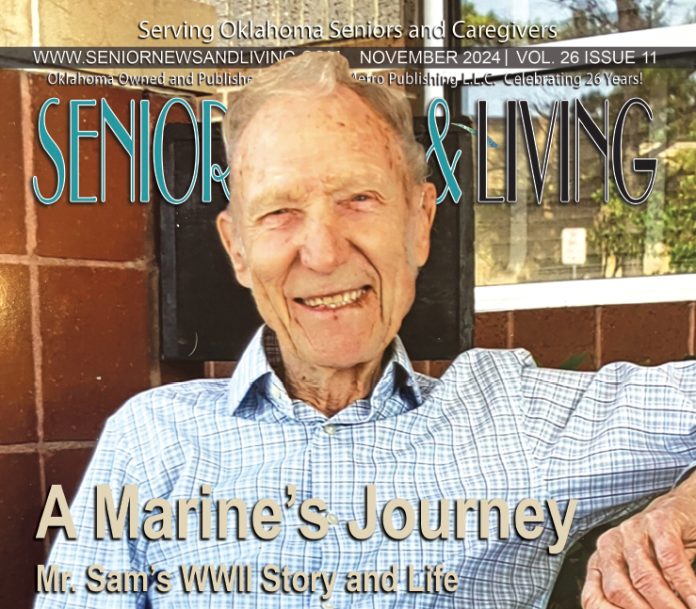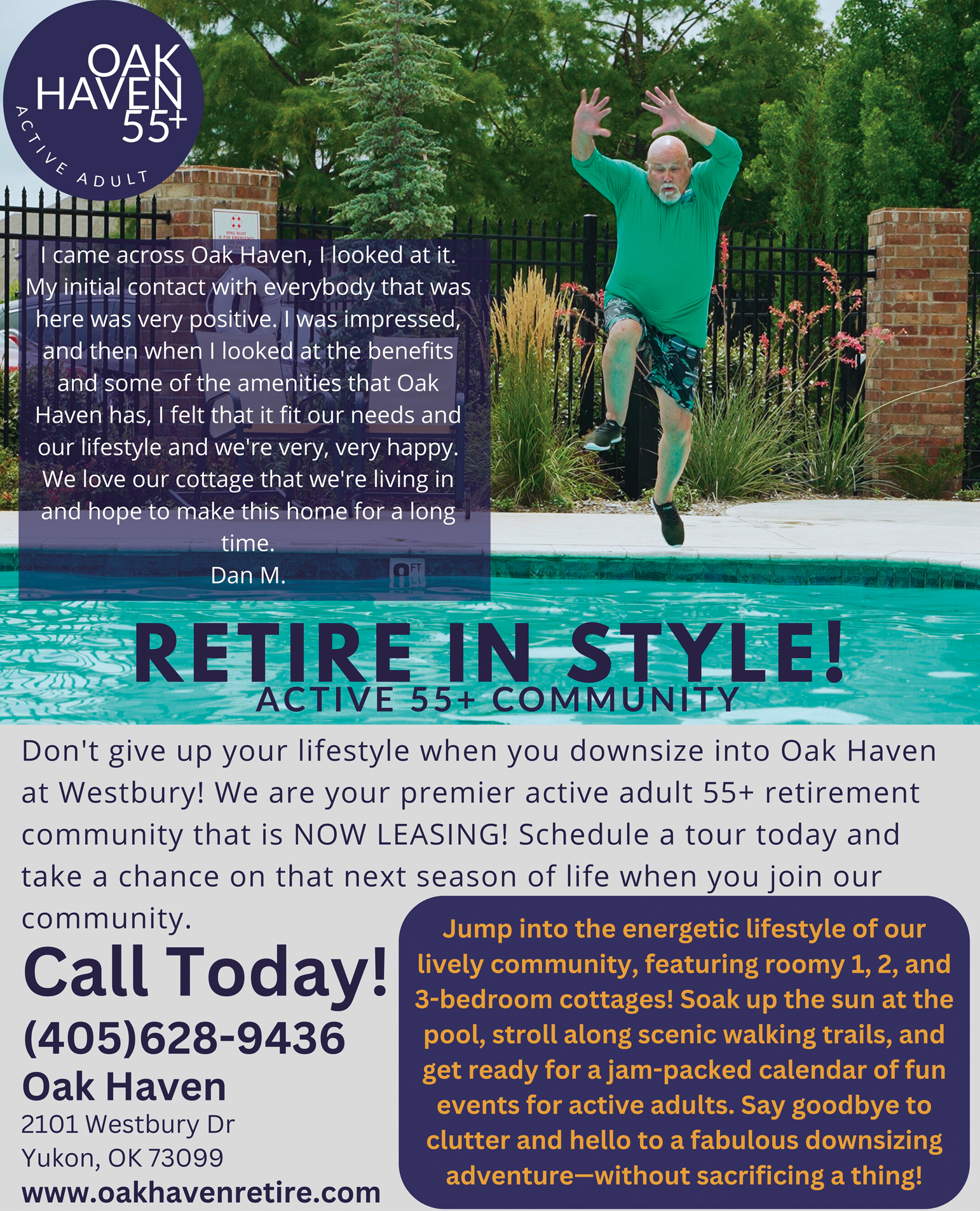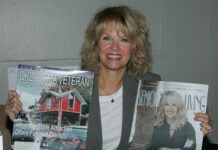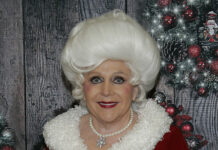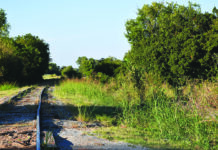At 97, Gillaspy Shares Tales of Courage, Service, and Resilience.
From serving in WWII to building a family farm and becoming a beloved storyteller, legacy spans generations.
Story by Richard Stephens, Jr.
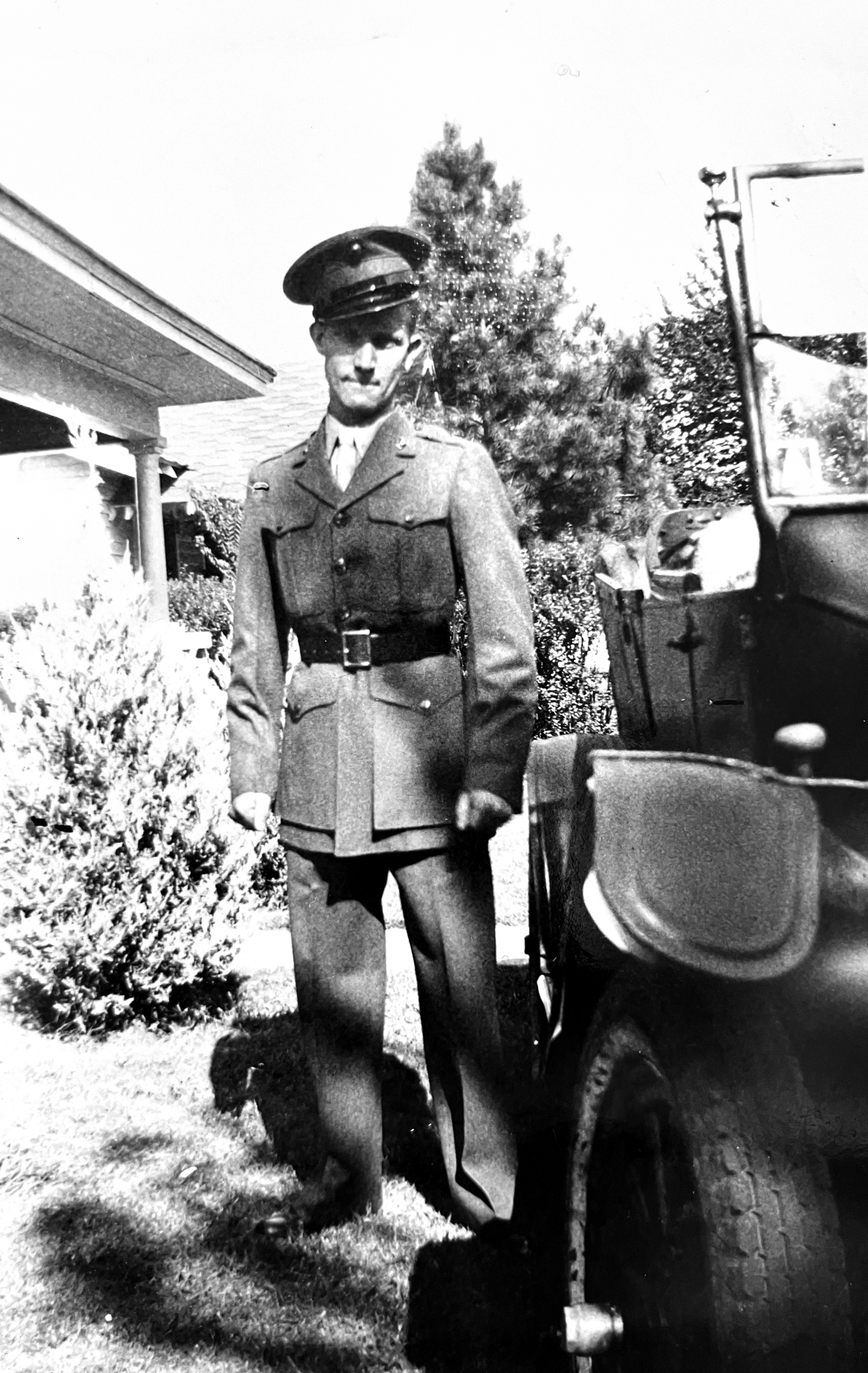
Mr. Sam Gillaspy, age 97, is a member of the Greatest Generation, a precious and small (100,000 remain) group of men (and women) who served our nation during WWII. Everyone calls him Mr. Sam and he lives in Midwest City.
He is physically strong, slim, and walks straight without bending over or using any physical aid. Over time, he has lost much of his hearing, some memory and speaks with difficulty.
Joining the Marine Corps
“I was 17 and the United States needed men awful hard. So, I entered the Marines (enlisted on February 28, 1945, with a delayed report date) and I still had about three months of (high) school left,” Mr. Sam said. His parents gave permission to enlist. Why the Marine Corps? According to Jeannie Vollmer, his partner, he felt that the Marines were the toughest Service.
Was he strong enough to join? Mr. Sam laughed and said, “Oh yeah. Back then, yeah, I was.”
Training at Parris Island
After graduating high school, the Marines sent Mr. Sam a letter assigning him to active duty service, effective June 5, 1945. He remembered, “You got five days to get everything (ready to go). And so, it took us five days to get from Oklahoma City to the east to the ocean” at Parris Island, South Carolina, for basic training.
Was the training hard? “Yes, and I did pretty good…I made it the middle” (a good training record).
“They taught me how to fire a BAR (Browning Automatic Rifle)…It’s a long…bigger than a rifle and it has at the end of it, a tripod. You laid down and (moving arms left to right) and shot…like a machine gun.” Mr. Sam likely fired the Browning M1918A2 Automatic Rifle, which was the WWII production model used by servicemen after 1940. “They put me to do it and became real good …We learned how to tear them down and get them back together. We did that for several days.”
There was field training too. Wearing backpacks, men held their BARs and crawled under barbed wire into live fire zones to practice wartime skills.
“Live ammunition. We didn’t know. They (instructors) were shooting. It was bang, bang. They told you that if you get up, they will shoot you. You die…And you had to just to squeeze through the wire. And some of the boys…had holes in their backpack…because they’re already big men and (it was) a small width. I was down where it (the fire) didn’t hit me or my pack. I made it just fine.”
Assignment at Camp Pendleton
After training, “We went from Parris Island…from east to the west…to San Diego, California…And we didn’t know where we were going. We got out of the train, standing on the pier in the middle of the night…and there was a big boat with planks (gangway). I had never seen such a ship like that – it was a monster thing.”
The Marines formed up. A man called their names alphabetically, starting with “A.” “All the boys were going upstairs (into the ship) as they called their name.
“Then, all of a sudden, this guy comes up with a jeep and said something to the guy that was reading the names. He said, ‘You, you and you fall out and follow this man in the jeep.’ And I was the third one. They put the three of us in that jeep and we drove and drove way up to (Camp) Pendleton” (California), Mr. Sam said.
The others left on the pier? “And all the rest of them, they ended going into the ship. Those that went out (on the ship), some of them came back, some of them didn’t. I guess it was meant for me to stay right there.
“They needed somebody to take care of the general’s car. They put me doing that.” Private Gillaspy’s occupation was officially “Truck Driver.” He serviced the vehicle and kept it shined.
Mr. Sam saw men coming back from being stationed in the Pacific theater of operations. “I was able to talk with them. This one man, I don’t know why, it’s been so long, he gave me his rifle that he came from the war…” because the man had used it shooting Japanese. “And he said, ‘…he couldn’t take it anymore’…And he gave it (rifle) to me. And I was able to put it in my barracks.”
Time Off
During days off, Mr. Sam and friends sometimes went to Los Angelas to United Services Organization (USO) parties. Hitchhiking was common.
USOs were a place to relax with talking, dancing and drinking. “What was nice was, Hollywood ladies would come up to me and ask, ‘Would you like to dance with me?’ I said, ‘Yes, Ma’am, but I don’t know how!’” he said, laughing.
Coming home
“My time ended (enlistment). They gave me my big footlocker…When it was time (to leave), they took us to the post gates.” Mr. Sam did what others did: hitchhiked home. “It was five minutes and this big Buick with a man driving it (pulled up). He said, ‘Which way are you going?’ Mr. Sam replied, ‘I’m going to Oklahoma City.’ ‘Well,’ he said, ‘I’m going to Tulsa. I’ll take you and it won’t cost you nothing.’”
That’s how Mr. Sam got home after serving in WIWII. He was discharged as a Private First Class on August 26, 1946, after serving a bit more than 14 months.
Post war
Mr. Sam worked for Dolese, a well-known cement maker, for 40 years starting in 1949. He met Betty, his future wife, and once married, had two daughters, Rita and Cynthia. They built a home on 42nd Ave. and Kelly Ave. in Oklahoma City.
In 1961, Mr. Sam bought a 160-acre farm in Luther containing a small house built in 1889. He drove concrete trucks full-time for Dolese and farmed part time. Once he added rooms and electricity to the house, Betty, Rita, and Cynthia moved there in 1968. Unfortunately, Betty died of a heart attack soon after. They grew wheat and alfalfa, fed 80 Hereford cows and raised chickens and rabbits.
Mr. Sam is well known at Arcadia’s Round Barn. He started storytelling and giving tours soon after the barn’s renovation in 1992. He explained posters and pictures on the first floor and showed visitors the former hayloft on the second floor that hosted many dances.
Although he stopped storytelling at the Round Barn in 2020, lucky visitors can still catch him there when he stops in to say hello.
Postscript
Was Mr. Sam glad he served in the war? “Oh yeah, I was,” he said, smiling broadly. “I enjoyed all of it.”
Asked he had a philosophy on living life or what makes for a good life, Mr. Sam thought for a minute. Chuckling, then smiling, thinking through his answer, he replied, “I don’t smoke. I don’t drink. I don’t chase wild women.” (Laughed). His is a life lived well.


